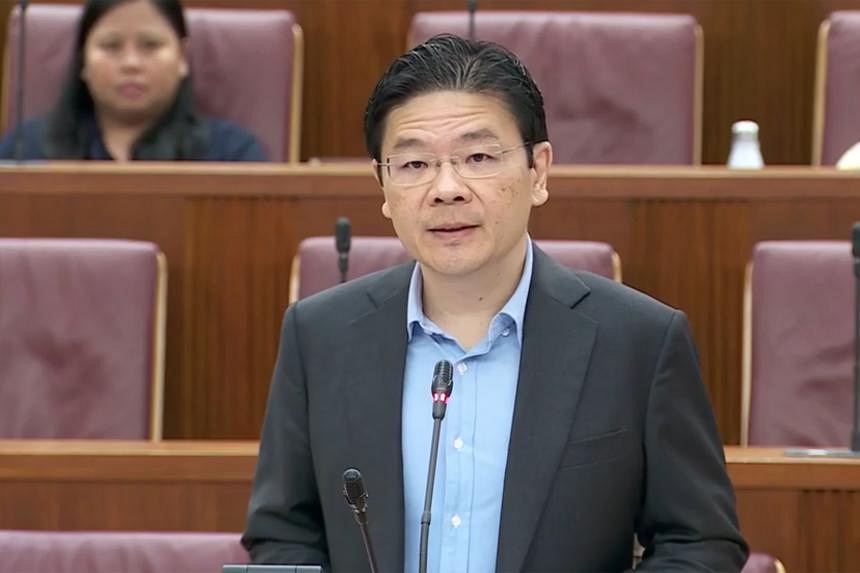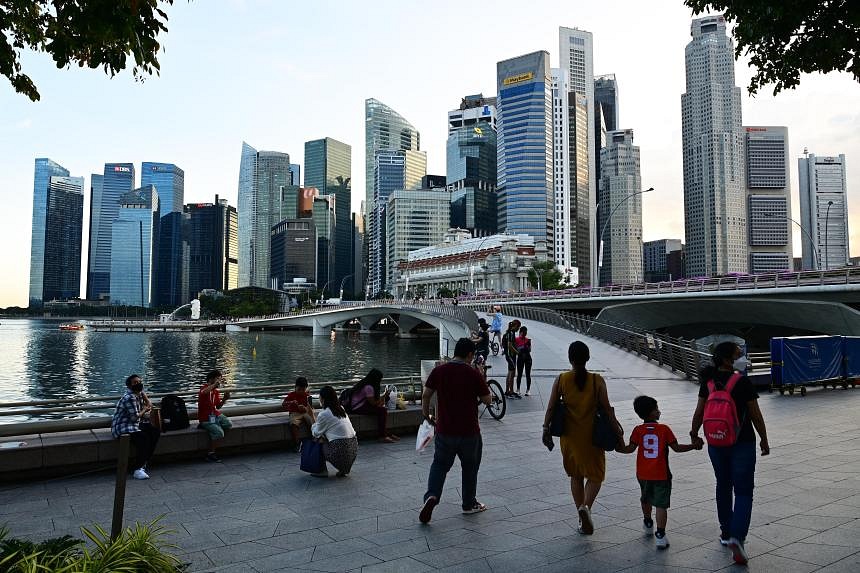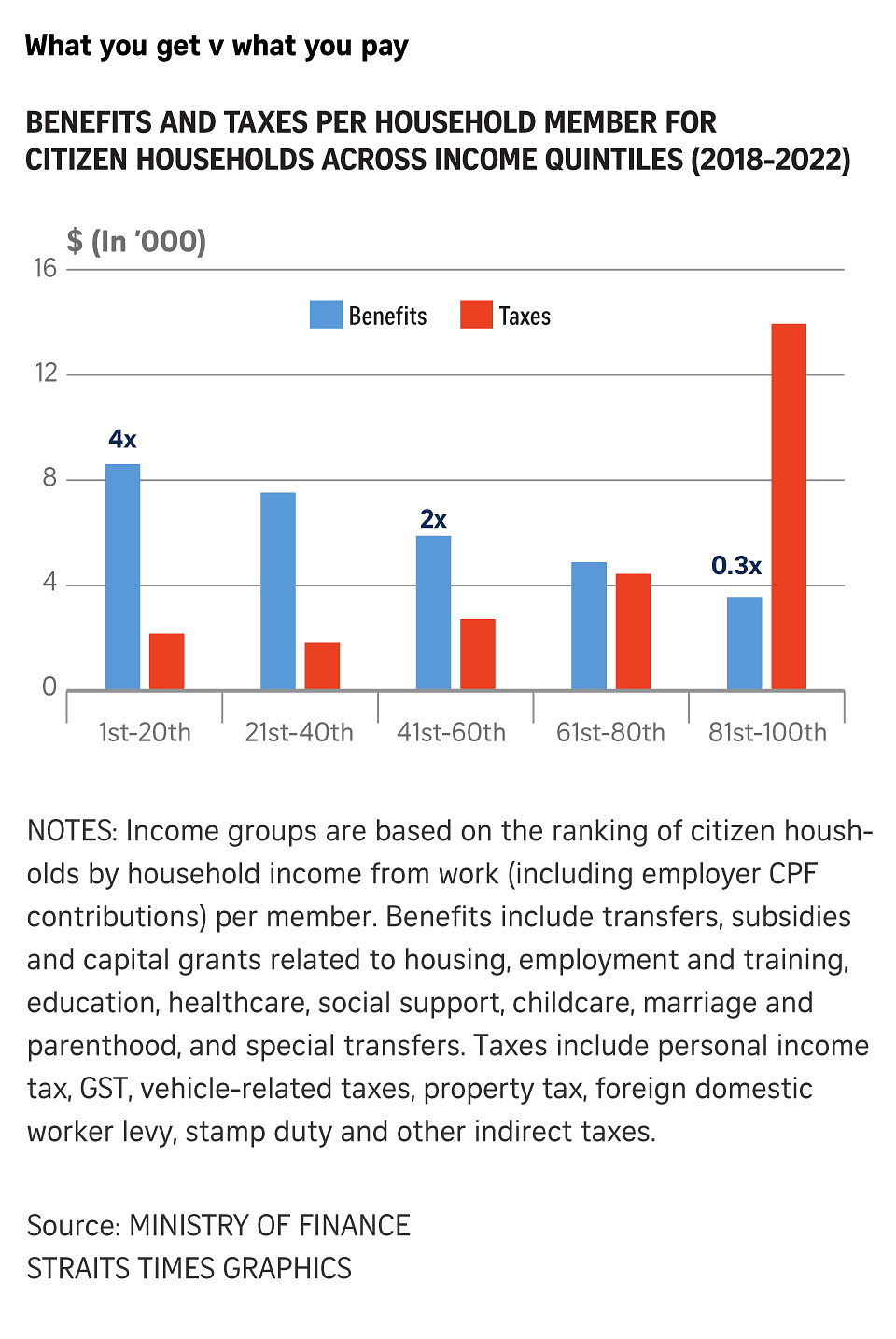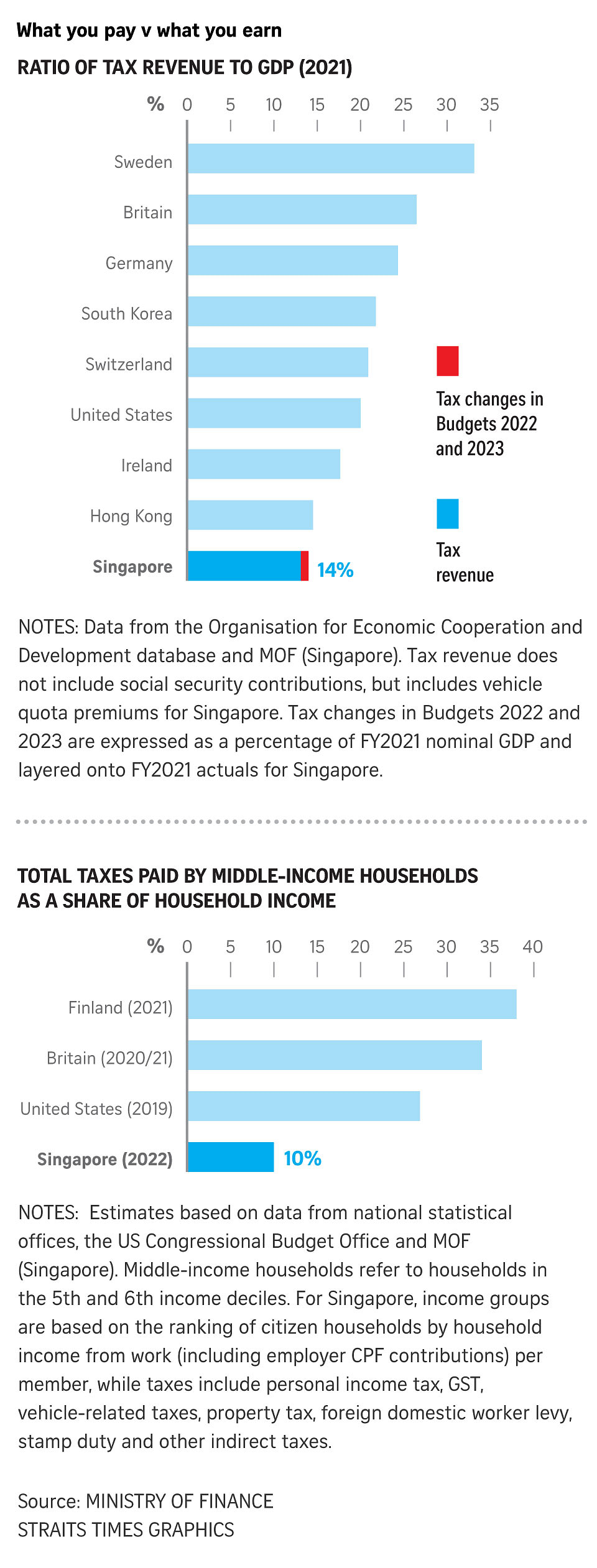- Joined
- Jul 14, 2008
- Messages
- 89,688
- Points
- 113
from straitstimes.com:

Grace Ho
Deputy News Editor

Some MPs raised issues in Parliament that may be less high-profile but no less vexing, such as those faced by single unwed mothers and their children. ST PHOTO: ALPHONSUS CHERN
UPDATED
7 HOURS AGO
FacebookTwitter
After covering Parliament for some time, I’ve come to realise it can sometimes seem to be a case of “he said, she said”, when it comes to who seeded an idea that eventually became policy. When someone claims credit for a good idea, others may disagree.
On the second day of the Budget debate on Thursday, Workers’ Party MP Jamus Lim (Sengkang GRC) said he had suggested in 2022 that the Government beef up the goods and services tax voucher (GSTV) scheme. He had argued then that the duration of offsets would be eroded by inflation.
That’s fair enough, if one assumes the offsets are immutable.
But I’m not so sure about his assertion that the latest Budget announcement to increase the permanent voucher scheme, “restores the Government’s original promise” of the number of offset years – given that the promise was never broken to begin with.
It had already been announced in Budget 2022 that the permanent GSTV scheme would be enhanced to provide continuing offsets for the GST expenses of lower- to middle-income households, and most retiree households, beyond the transitional period covered by the Assurance Package.
The Government never closed the door on future enhancements.
Take this quote from Deputy Prime Minister and Finance Minister Lawrence Wong in Parliament in July 2022: “We will continue to assess the adequacy of the Assurance Package as the inflationary outlook evolves. If need be, we will further enhance the Assurance Package to uphold our commitment.”
In October 2022, in conjunction with the announcement of an additional $1.5 billion support package, Mr Wong also said there would be an update to the Assurance Package to take into account higher than expected inflation.
Well, that has come to pass, with various payouts upped in this year’s Budget.
Ditto for the wealth and sin taxes Associate Professor Lim proposed as alternative revenue levers in his speech on the 2022 Budget statement, which he mentioned again on Thursday.
It’s not just opposition politicians who have made such proposals in the past.
In 2020, for example, Ms Foo Mee Har (West Coast GRC) had asked if the Government would consider introducing wealth taxes and bringing back the once-removed estate duty, as a better way to raise revenue to deal with rising expenditures such as healthcare costs and build a fairer society.
She had also highlighted Singapore’s other advantages, such as the rule of law and stability, that would grant wealthy individuals peace of mind even if wealth taxes were introduced.
But leaving aside the issue of who is the first mover – and without downplaying the hot-button topics of employment, business needs, climate change, and housing – some members raised issues that may be less high-profile but no less vexing.
Nominated MP Shahira Abdullah said that inadvertent structural roadblocks in Singapore society can penalise not just unwed single mothers, but also their children.
In order to continue availing themselves of state incentives which are geared towards married women, these mothers may find it impossible to walk away from bad or abusive relationships. It can affect how their children – the next generation of Singaporeans – live and grow, she noted.
She also urged employers to adopt a strong pro-family work culture, where flexible work arrangements are the norm.
“Let’s not wait for incentives and legislation from the Government,” she said. “We can all do our part.”
Likewise, Ms He Ting Ru (Sengkang GRC) observed that most single, unmarried mothers, given a choice, would hope to be part of a stable, fulfilled marriage.
“Yet, in our haste to ward off the hex of ‘encouraging single parenthood’, we appear to either be punishing innocent children born to unmarried mothers, or encouraging hasty, possibly unsuitable marriages. This may lead to further difficulties down the line,” she said.
Mr Leon Perera (Aljunied GRC) suggested making pre-school education compulsory and completely free for the children of those with lower incomes, while Ms Mariam Jaafar (Sembawang GRC) called for more support for former offenders, and boosting Singaporeans’ financial capabilities so they do not end up in debt in the first place.
Mr Don Wee (Chua Chu Kang GRC) sought funding to develop more specialised programmes for students with different disabilities.
He also urged more community organisations and businesses to create internship and work opportunities for these students, which will improve their chances of finding employment after graduation.
While more employers today have hired persons with disabilities, there is still a lack of awareness of the government support available – such as the Open Door Programme which provides grants and employment services; or the Enabling Employment Credit, a wage offset scheme to support the employment of those with disabilities.
Or are some workplaces simply uncomfortable with having persons with disabilities in their midst?
Acknowledging such remaining hurdles, Mr Wee said it’s not just about meeting manpower requirements, but also enabling co-workers to develop a sense of empathy and kindness.
“It is a whole-of-society effort, and it involves the Government, employers and employees, sometimes family members too, to play a part in making workplaces inclusive for persons with disabilities.”
From the Gallery
No monopoly on good ideas in Parliament, but some gaps and questions remain

Grace Ho
Deputy News Editor

Some MPs raised issues in Parliament that may be less high-profile but no less vexing, such as those faced by single unwed mothers and their children. ST PHOTO: ALPHONSUS CHERN
UPDATED
7 HOURS AGO
FacebookTwitter
After covering Parliament for some time, I’ve come to realise it can sometimes seem to be a case of “he said, she said”, when it comes to who seeded an idea that eventually became policy. When someone claims credit for a good idea, others may disagree.
On the second day of the Budget debate on Thursday, Workers’ Party MP Jamus Lim (Sengkang GRC) said he had suggested in 2022 that the Government beef up the goods and services tax voucher (GSTV) scheme. He had argued then that the duration of offsets would be eroded by inflation.
That’s fair enough, if one assumes the offsets are immutable.
But I’m not so sure about his assertion that the latest Budget announcement to increase the permanent voucher scheme, “restores the Government’s original promise” of the number of offset years – given that the promise was never broken to begin with.
It had already been announced in Budget 2022 that the permanent GSTV scheme would be enhanced to provide continuing offsets for the GST expenses of lower- to middle-income households, and most retiree households, beyond the transitional period covered by the Assurance Package.
The Government never closed the door on future enhancements.
Take this quote from Deputy Prime Minister and Finance Minister Lawrence Wong in Parliament in July 2022: “We will continue to assess the adequacy of the Assurance Package as the inflationary outlook evolves. If need be, we will further enhance the Assurance Package to uphold our commitment.”
In October 2022, in conjunction with the announcement of an additional $1.5 billion support package, Mr Wong also said there would be an update to the Assurance Package to take into account higher than expected inflation.
Well, that has come to pass, with various payouts upped in this year’s Budget.
Ditto for the wealth and sin taxes Associate Professor Lim proposed as alternative revenue levers in his speech on the 2022 Budget statement, which he mentioned again on Thursday.
It’s not just opposition politicians who have made such proposals in the past.
In 2020, for example, Ms Foo Mee Har (West Coast GRC) had asked if the Government would consider introducing wealth taxes and bringing back the once-removed estate duty, as a better way to raise revenue to deal with rising expenditures such as healthcare costs and build a fairer society.
She had also highlighted Singapore’s other advantages, such as the rule of law and stability, that would grant wealthy individuals peace of mind even if wealth taxes were introduced.
But leaving aside the issue of who is the first mover – and without downplaying the hot-button topics of employment, business needs, climate change, and housing – some members raised issues that may be less high-profile but no less vexing.
Nominated MP Shahira Abdullah said that inadvertent structural roadblocks in Singapore society can penalise not just unwed single mothers, but also their children.
In order to continue availing themselves of state incentives which are geared towards married women, these mothers may find it impossible to walk away from bad or abusive relationships. It can affect how their children – the next generation of Singaporeans – live and grow, she noted.
She also urged employers to adopt a strong pro-family work culture, where flexible work arrangements are the norm.
“Let’s not wait for incentives and legislation from the Government,” she said. “We can all do our part.”
Likewise, Ms He Ting Ru (Sengkang GRC) observed that most single, unmarried mothers, given a choice, would hope to be part of a stable, fulfilled marriage.
“Yet, in our haste to ward off the hex of ‘encouraging single parenthood’, we appear to either be punishing innocent children born to unmarried mothers, or encouraging hasty, possibly unsuitable marriages. This may lead to further difficulties down the line,” she said.
Mr Leon Perera (Aljunied GRC) suggested making pre-school education compulsory and completely free for the children of those with lower incomes, while Ms Mariam Jaafar (Sembawang GRC) called for more support for former offenders, and boosting Singaporeans’ financial capabilities so they do not end up in debt in the first place.
Mr Don Wee (Chua Chu Kang GRC) sought funding to develop more specialised programmes for students with different disabilities.
He also urged more community organisations and businesses to create internship and work opportunities for these students, which will improve their chances of finding employment after graduation.
While more employers today have hired persons with disabilities, there is still a lack of awareness of the government support available – such as the Open Door Programme which provides grants and employment services; or the Enabling Employment Credit, a wage offset scheme to support the employment of those with disabilities.
Or are some workplaces simply uncomfortable with having persons with disabilities in their midst?
Acknowledging such remaining hurdles, Mr Wee said it’s not just about meeting manpower requirements, but also enabling co-workers to develop a sense of empathy and kindness.
“It is a whole-of-society effort, and it involves the Government, employers and employees, sometimes family members too, to play a part in making workplaces inclusive for persons with disabilities.”































